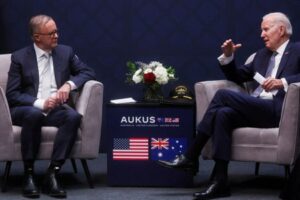BRASILIA (Reuters) -Brazil is to launch a debt renegotiation program for millions of lower-income individuals using state guarantees in September, fulfilling a campaign promise of leftist President Luiz Inacio Lula da Silva.
About 71.9 million people in Latin America’s largest economy have been blacklisted, according to credit bureau Serasa, after families’ budgets were strained by the pandemic and high borrowing costs during an inflation surge.
The first phase of the comprehensive renegotiation program “Desenrola Brasil” will kick off on Monday, the Finance Ministry said.
During this phase, banks will forgive debts up to 100 reais ($21) and provide customers with monthly incomes of up to 20,000 reais ($4,164) the opportunity for direct debt renegotiation without any limit on the value of their debt.
There will be no contribution from the state treasury, but to encourage negotiation by banks, the government will offer financial institutions a regulatory incentive to increase credit availability, allowing the use of presumed credits totaling approximately 50 billion reais.
According to the ministry, about 30 million people could benefit from this initiative.
The renegotiation for those with monthly incomes of up to two times the minimum wage, equivalent to 2,640 reais ($550), will begin in September, the ministry said. In these cases, the renegotiation will have government guarantees for financial and non-financial debts up to 5,000 reais.
This phase is deemed the heart of the program and is considered more complex as it requires the government to create a platform to centralize data on consumer debts.
Finance Minister Fernando Haddad, speaking to reporters on Friday after a meeting with Lula, said that the government would conduct debt auctions, providing guarantees only for debts in which creditors offered the highest discounts.
The government stated that the program aims to combat the delinquency crisis in the country “in a scenario where interest rates have radically changed.”
The central bank has maintained its benchmark interest rate steady at 13.75% since September, drawing frequent criticism from Lula.
Haddad played down the likelihood of a new government program aimed at promoting the purchase of home appliances, a measure adopted in previous administrations run by Lula’s Workers Party (PT).
“There was no directive for us, and I am not even sure if there will be,” he said.
Earlier this week, Lula proposed a program to facilitate the acquisition of domestic appliances, following his government’s funding of limited-time discounts on car purchases to help the auto industry.
($1 = 4.8034 reais)
(Reporting by Marcela Ayres; Editing by Steven Grattan and Conor Humphries)





